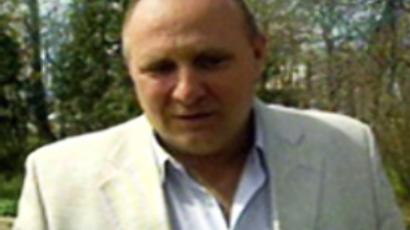New law protects journalists
Reporters investigating corruption in Russia are to be protected by a new law. Under new legistlation, they'll be able to apply for special protection like court witnesses. The law will come into effect by the beginning of next year.
Experienced journalist Natalya Novozhilova published an article exposing corruption in Russia’s central Vladimir region. She accused the local forestry administration of stealing money equivalent to the entire region's budget. The article changed her life. It won journalism awards, but it also earned her threats against her life.
“I was asked not to continue further investigation. They threatened to kill me if I didn't stop. You know, killing a journalist is an easy task: no journalist – no problem, for some people. That's why if you write about corruption or something like that you have to be ready to face such threats. And no one will help you,” Novozhilova said.
A new national plan to fight corruption, which president Dmitry Medvedev is about to release, includes providing state protection for reporters investigating corruption.
The head of the National Anti-Corruption Committee, Kirill Kabanov, says a range of measures needs to be put in place for the new law to work .
“We need to have a clear mechanism of legal regulation on every journalist publication. We need investigations of prosecutor’s offices, and some administrative measures if they prove necessary. Only then we’ll feel the feedback and reaction on the part of the authorities. And we need journalists to be protected,” Kabanov said.
Last year the Committee to Protect Journalists claimed Russia is the third deadliest country in the world for journalists over the past 15 years, behind only Iraq and Algeria. About 50 journalists have been murdered in the country since 1992, with the majority of the cases remaining unsolved.
The murder in 2006 of prominent reporter Anna Politkovskaya sent shock waves around the world and was a reminder that even internationally recognised reporters are not immune from the deadly violence.
Roman Shleynov works at Politkovskaya's former paper, the Novaya Gazeta. Together with his late colleague, Yury Schekochikhin, he worked on a series of reports into the corruption case involving Russia’s biggest furniture company. They claimed the official investigation was just a formality. It lasted eight years and 3,000 people were interviewed – the same number questioned at the Nuremberg trial at the end of WW2. But only $US 3 million of arrears was ever recognised. And no official has been arrested. Both reporters won awards for their work. Yury received his posthumously.
“Many of Yury's friends and colleagues are sure he was poisoned. He was just about to go to the U.S. to discuss this notorious case on smuggling, where the Russian side involved quite a number of top-ranking officials from the special services, customs office, prosecutor’s office and so on. Someone just didn’t like it,” Roman Shleynov says.
Roman says he welcomes any initiative designed to protect journalists in their work.














